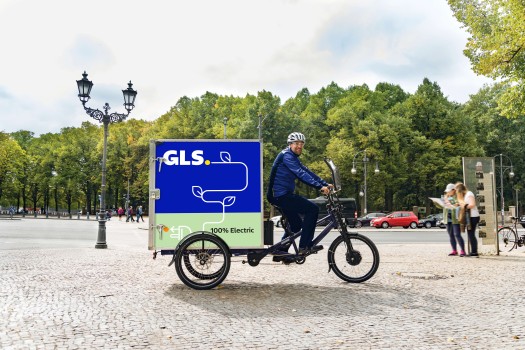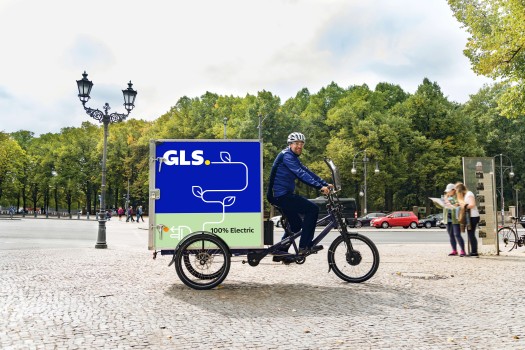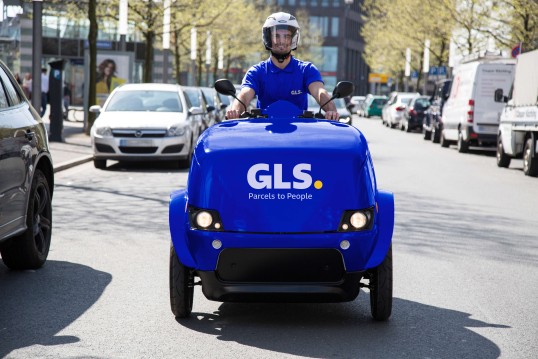Leader in parcel logistics operating throughout Europe, the GLS Group is aware of its responsibilities towards the environment.
Its objective is to guarantee its customers a logistics service of optimal quality while taking into account the impact on our environment .
For subsequent generations, the company intends to achieve sustainable economic success in connection with protecting the environment.
Climate Protect - environmental protection
Responsibility for our environment
The protection of our environment is a fundamental principle of GLS, which its employees apply on a daily basis throughout Europe. GLS launched in 2022 its environmental strategy initiative Climate Protect in order to coordinate and actively promote the various activities carried out within the GLS Group.
Objectives of the initiative:
- Promote responsible use of resources: electricity, water, gas, paper... (e.g. through employee training, and close follow-up of the actual consumption of resources on our different sites)
- Reduce emissions (e.g by decarbonizing the transport fleet through the implementation of zero- and low-emission vehicles, the installation of solar panels, implementation of electric company cars and maximizing the use of green electricity)
- Optimize waste recycling & elimination (e.g. through detailed waste management plans & visualizations in our depots)
Environmental managers are present in all GLS subsidiaries. They oversee the implementation of environmental measures taken at Group level and establish the roadmaps to achieve the overall group targets:
- Renewable electricity: 80% by 2022 (European locations operated by GLS)
- Fleet:
- 50% zero/low emission by 2030
- 100% of new vehicles will be low or zero emission by 2035
GLS zero emissions by 2045 ambition is to reduce 90% of its Scope 1, 2 and 3 CO2e emissions by 2045, while offsetting the remaining 10% residual emissions through investment in certified climate protection projects. A pathway to deliver this reduction will be developed and to base this path way on climate science, GLS has committed to set targets in line with the Science Based Target initiative in December 2023. - 100% by 2045
This means vehicles that during operation create either significantly lower emissions than diesel - and gasoline - powered vehicles (e.g. LPG, CNG or LNG vehicles) or no emissions (e.g. electric or hydrogen vehicles).
- 50% zero/low emission by 2030
- Company cars: 100% zero emission by 2030
Environmental management: ISO 14001 certified
GLS’s environmental management system contributes to implementing the actions defined under the Climate Protect initiative and achieving the objectives set. The environmental management system obtained its first ISO 14001 certification in 2011. All GLS subsidiaries now have this label. You can find ours here .
Ecological footprint
GLS regularly documents and monitors progress made in protecting the environment. Since 2008/2009, the calculation of its ecological footprint provides information on emissions, resource consumption and waste disposal across the Group. In its recent ESG report, GLS publishes the figures for the evolution of its emissions.
The GLS Corporate Carbon Footprint is created according to the Green House Gas Protocol. It is externally verified by certified public accountants each year, before it is published in the annual Group ESG report.
The transport emissions are calculated compliant to the requirements of the European standard EN 16258 for calculating and reporting GHG emissions from transportation.




